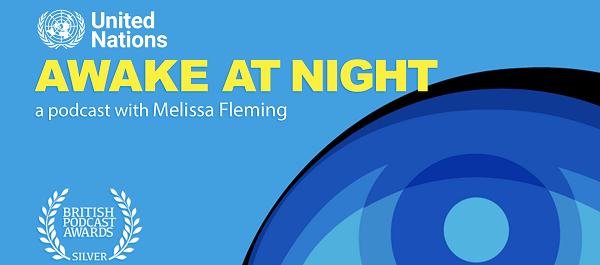Radio and climate change
In the wake of the continuous increase of negative climatic effects that plague the planet, such as the confirmation that 2024 has been the warmest year on record,the deep devastation caused by the wildfires in California, or the high impact of land degradation on billions of persons, the importance of proper communication of climate events is becoming increasingly important.
If we focus the lens on our immediate future, 2025 is crucial for addressing climate change. According to the Paris Agreement, if we want to limit global warming to 1.5°C, greenhouse gas emissions need to peak by that year at the latest, and then start to decline.
World Radio Day on February 13, 2025, is dedicated to “Radio and Climate Change” to support radio stations in their journalistic coverage of this issue.
Reporting on an inconvenient truth
Despite the recent scarcity of financial resources for radio stations, which have led to staff reductions and increased costs in obtaining verified information, the use of diverse and reliable sources is crucial to reporting on climate change.
Broadcasters must prioritize the quality and diversity of information sources, as they play a critical role in addressing climate-related issues. This includes dismantling climate skeptics' arguments, investigating greenwashing, understanding ecological economics, and reporting on climate activism and barriers to solutions.
Editorial independence, essential for serving the public interest, relies on free information that is independent of corporate and political influences.
Get involved in #WorldRadioDay
Among the many events being prepared for World Radio Day, UNESCO invites radio stations to take advantage of new free resources on radio and climate change, to follow the LinkedIn event on the celebration and to register your station to appear on the UNESCO map.
Your radio station will have the opportunity to connect with a station in another locality or country. Through these collaborations, you can exchange programmes, guests, sound archives, and even consider establishing a long-term relationship beyond February 13, 2025. Don't miss out on this opportunity!
13 Ideas for Celebrating 13 February
Support radio stations prepare on-air programmes with “13 Ideas for Celebrating 13 February”.
Background
Proclaimed in 2011 by the Member States of UNESCO and adopted by the United Nations General Assembly (A/RES/67/124) in 2012 as an International Day, February 13 became World Radio Day (WRD).
Radio is a powerful medium for celebrating humanity in all its diversity and constitutes a platform for democratic discourse. At the global level, radio remains the most widely consumed medium. This unique ability to reach out the widest audience means radio can shape a society’s experience of diversity, stand as an arena for all voices to speak out, be represented and heard. Radio stations should serve diverse communities, offering a wide variety of programs, viewpoints and content, and reflect the diversity of audiences in their organizations and operations.
Radio is a low-cost medium specifically suited to reaching remote communities and vulnerable people, offering a platform to intervene in the public debate, irrespective of people’s educational level. It also plays a crucial role in emergency communication and disaster relief.
Radio is uniquely positioned to bring communities together and foster positive dialogue for change. By listening to its audiences and responding to their needs, radio services provide the diversity of views and voices needed to address the challenges we all face.
This year, we are paying tribute to the different ways in which radio serves as a tool for adapting to and mitigating the effects of climate disruption in our rapidly changing world"
Audrey Azoulay, Director-General of UNESCO - World Radio Day Message
Listen
Awake at Night
How to save humanity from climate breakdown? The UN global communications chief Melisa Fleming interviews the Secretary-General of the World Meteorological Organization (WMO).
Resilience: The Global Adaptation Podcast
Resilience is the UNEP´s podcast that brings you inspiring stories from people all over the world who are adapting to climate change in practical, creative and innovative ways.
Read
- Veterans reflect on past, present and future of radio at the UN
- Enhancing disaster preparedness and response for Caribbean media: UNESCO teams up with the Caribbean Broadcasting Union








